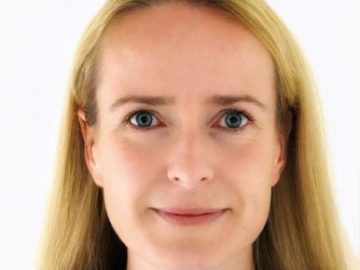Dr. Joanne Stocks
Assistant Professor Sports and Exercise Medicine
Musculoskeletal PPI Lead
Orthopaedics, Trauma and Sports Medicine, University of Nottingham
Centre for Sport Exercise and Osteoarthritis Research Versus Arthritis
Pain Centre Versus Arthritis
NIHR Nottingham Biomedical Research Centre, Musculoskeletal Theme
Research Summary
Joanne Stocks graduated from Leeds University with a BSc (Hons) degree in Sports Science and Physiology. She obtained a PhD in Respiratory Medicine from the University of Nottingham, under the supervision of Prof Alan Knox, where her research investigated the 'Production of soluble angiogenic factors by airway smooth muscle'. This research was a continuation of a molecular and cellular research project begun during her Oncology MSc degree (University of Nottingham). During her PhD, Joanne was also awarded a Universitas 21 scholarship to spend time working in the laboratories of Prof Alastair Stewart at the University of Melbourne's Department of Pharmacology.
Following her PhD Joanne worked for PetScreen Ltd a biotechnology company, developing and optimising a directed chemotherapy assay for determining cancer treatments for pets. Alongside this role, she continued working at the University of Nottingham in the Division of Epidemiology and Public Health on a number of projects, which included assessing the impact of the National Schools Fruit Scheme on the health and diet of children and investigating the effectiveness of smoking intervention programs.
Joanne then began researching cardiac stem cell biology and regenerative medicine, focusing on the cellular and molecular responses of the heart to exercise at Liverpool John Moore's University. She then transferred to the Icahn School of Medicine at Mount Sinai, Zena and Michael A. Wiener Cardiovascular Institute, New York to continue the collaboration and to work with Dr Valentin Fuster and Prof Roger Hajjar investigating the dedifferentiation of adult cardiomyocytes and the protective paracrine effects of cardiac progenitor cells on cultured adult myocytes.
On her return to the UK, Joanne was involved in a variety of basic science, epidemiological and clinical research projects at the University of Nottingham and Loughborough University.
Joanne is currently working at the University of Nottingham and is Associate Professor of Sports and Exercise Medicine in the Department of Orthopaedics, Trauma and Sports Medicine. She teaches on the MSc Sports and Exercise Medicine and MSc Applied Sports and Exercise Medicine courses and is convenor for the 'Research Methods for Sports and Exercise Medicine' and 'Common Sporting Injuries: An Evidence Base' modules, having previously been convenor for the ‘Research Methods’, ‘Physical Activity Epidemiology’, ‘Qualitative Methodology and Analysis’, and ‘Project and Dissertation: Sports and Exercise Medicine’ modules.
Joanne is PI on a study funded to look at gut microbiome diversity in athletes as well as Co-I of a study of recreational runners, their injuries, performance and Covid-19. In addition, she is leading the development of an app to monitor the local population during Covid-19 restrictions and was co-moderator of the Community Participation working group creating the Research Data Alliance's Covid-19 Recommendations and Guidelines.
As a member of Pain Centre Versus Arthritis she is working on a number of projects which include investigating circulating markers of central sensitization in knee osteoarthritis, a collaboration with the OA Trial Bank to identify placebo responders and predictors of response to osteoarthritis treatment using individual patient data.
Joanne is also a member of the NIHR Nottingham BRC Musculoskeletal theme with a research interest in the area of healthy ageing, focusing on the role of nutrition in frailty, osteoarthritis and pain. In addition, she is also a current Cochrane member.
Joanne is the Patient and Public Involvement (PPI lead) for the BRC Musculoskeletal theme, and University of Nottingham MSK representative for East Midlands Sharebank. She is also on the School of Medicine PPI working group and with fellow academics and patient representatives co-produced and delivered the new BMedSci PPI module.
